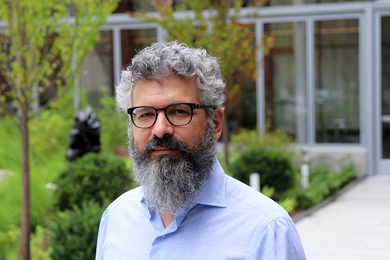MIT will ask an outside expert to review the Institute's handling of harassment charges brought by sophomore Julia Carpenter in the months prior to her death by suicide on April 30.
In a letter to Sandra Chung, a student reporter for The Tech, President Charles Vest said, "The purpose is to gain additional perspective on our complaint handling and support services, and to determine ways in which our processes might be improved in the future."
Vest said MIT will not be able to make details of the review public because of privacy concerns. However, "if the consultant draws conclusions about our systems and procedures that could lead to their improvement in the future, we will of course share those with the community," he said.
Following The Tech's publication on Aug. 8 of Chung's article, the full text of the letter was published on the MIT News web site. The letter, dated July 16, said:
I appreciate the care with which you are following the tragic story of Julie Carpenter's death.
As you know, questions have been raised about the manner in which MIT handled harassment charges she brought in the months prior to her death. We are in the process of asking a person outside MIT, but who has an in-depth understanding of contemporary campus issues, to review all aspects of our investigation and adjudication of those harassment charges.
The purpose is to gain additional perspective on our complaint handling and support services, and to determine ways in which our processes might be improved in the future. It will not be an investigation into Ms. Carpenter's death. That was done by the Massachusetts medical examiner. It also will not be designed either to assess blame or offer excuses. It is instead one of many ways we seek advice, understanding of best practice and paths for improvement. Indeed, our own MIT staff are called upon from time to time to help with similar assessments and reviews at other institutions and organizations.
We will not be able to make any details of this review public because of our respect for the privacy of those involved. In fact, both MIT policies and federal law protect such privacy. The consultant will also need to interview various students and staff under conditions of appropriate confidentiality.
If the consultant draws conclusions about our systems and procedures that could lead to their improvement in the future, we will of course share those with the community.
I hope that this answers your questions. If not, we can talk further when you return to campus.
--Chuck Vest
A version of this article appeared in MIT Tech Talk on August 15, 2001.





